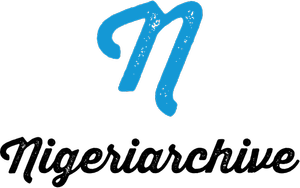 The Forex Market is open twenty-four hours a day, seven days a week. It is important to understand the best trading times in Nigeria, as well as how each session operates. In general, forex trading takes place between 8 am and 4 pm in each time zone. If you trade at this time, look for overlaps in the trading sessions, as there is greater volatility. Also, the forex market is more liquid, meaning spreads are lower.
The Forex Market is open twenty-four hours a day, seven days a week. It is important to understand the best trading times in Nigeria, as well as how each session operates. In general, forex trading takes place between 8 am and 4 pm in each time zone. If you trade at this time, look for overlaps in the trading sessions, as there is greater volatility. Also, the forex market is more liquid, meaning spreads are lower.
The Forex market is an excellent choice for investors who are seeking a stable investment. Nigeria’s rapidly growing middle class is becoming the fastest-growing group in Africa, and the forex market offers them access to investments that are available to investors anywhere in the world. Because the forex market is global and decentralized, it draws upwardly mobile Nigerians from all walks of life seeking a steady, reliable investment. And this growing middle class has brought increased interest in retail investment opportunities.
Although the Forex Market is relatively new in Nigeria, it is still considered a legal activity in the country, and the majority of brokers and traders are regulated. However, the regulatory framework in Nigeria is rather light by global standards. The Central Bank of Nigeria (CBN) is the national regulator and has rules and guidelines for brokers and traders to adhere to. This is good news for investors as foreign regulators cannot deal with FX cases in Nigeria.
Forex is the world’s largest financial market, and with a daily transaction volume of USD6.6 trillion, it’s a huge opportunity for people to invest in foreign currencies. It is easy to get started and can be profitable even for the non-experts. With its competitive environment and low fees, this is a popular choice among Nigerian investors. And with IC Markets, you can open a demo account and test the waters for free.
There are many reasons why you should consider investing in forex trading in Nigeria. Despite its relative lack of infrastructure, it is still relatively new. However, this shouldn’t discourage you. If you’re patient and prepared, forex trading in Nigeria can be an exciting and lucrative investment. Just remember that the forex market is notorious for its wild swings and unpredictable movements. It’s crucial that you gain knowledge and experience before attempting to trade in the currency market. By getting expert counsel, you can cut the learning curve and avoid the costly mistakes that many beginners make.
Changing international trade patterns and structural shifts have all played a role in the development of the FX market in Nigeria. The private sector, dominated the market prior to 1958, earned the majority of foreign exchange in Nigeria. Commercial banks were the primary holders of foreign exchange and were the agents of local exporters. However, the Covid-19 pandemic has impacted this growth, causing the country to go into recession. Although the economy is showing signs of a rebound, the citizens are still hopeful that the country will see a robust recovery.
